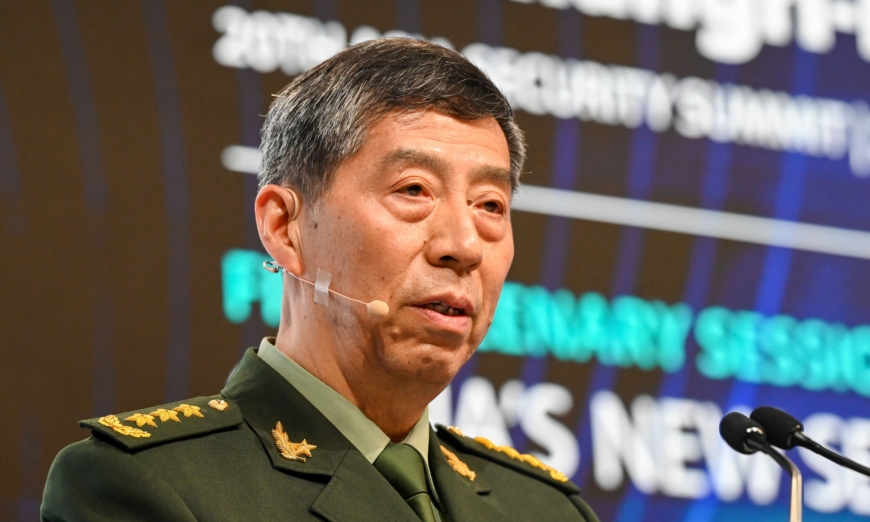BEIJING—China’s defense minister reaffirmed the country’s military relations with Russia during a meeting Monday with the head of Russia’s navy, the first formal military talks between the friendly neighbors since a short-lived mutiny by Russian mercenary group Wagner.
Minister of National Defense Li Shangfu told Russian Adm. Nikolai Yevmenov that the Chinese regime hoped for increased exchanges, joint exercises, and other forms of cooperation that would take defense ties to “reach a new level,” the Chinese Defense Ministry said after the two met in Beijing.
“The Chinese and Russian navies have close exchanges and frequent interactions,” the ministry quoted Li as saying. “It is hoped that the two sides will strengthen communication at all levels, regularly organize joint training, joint patrols and joint war games.”
China operates the world’s largest navy by number of hulls and vastly outstrips Russia’s navy in both size and technical ability. The countries’ fleets have held a series of exercises and joint maneuvers since Russia’s full-on invasion of Ukraine last year, as have their air forces.
The military cooperation embodies the Chinese and Russian governments’ informal alliance to oppose the U.S.-led liberal world order. They align their foreign policies and positions at the United Nations, where Beijing has consistently provided diplomatic cover for Moscow.
While saying it is neutral in the Ukraine war, the Chinese communist regime has stood solidly beside Russia, accusing the United States and NATO of provoking Moscow and of fueling the bloodshed by helping arm Ukraine.
The Chinese Communist Party (CCP) has refused to condemn the invasion or to refer to it as one in deference to Moscow but also has said it would not provide Russia with military assistance or weapons for the conflict.
Since the abortive rebellion led by Wagner chief Yevgeny Prigozhin, the CCP has said it backed Russian efforts to “stabilize the situation in the country.” The march on Moscow that Prigozhin launched and then called off last month posed the greatest challenge to President Vladimir Putin’s two decades in power.
The recent developments have very much made Russia the junior partner in the relationship with China. War-related sanctions have made the Russian economy heavily dependent on energy purchases from China and India.
Putin, Indian Prime Minister Narendra Modi, and Chinese leader Xi Jinping are set to meet Tuesday at a virtual summit that will mark Putin’s first multilateral meeting since the Wagner revolt rattled Russia.
The summit of the Shanghai Cooperation Organization, a security grouping founded by Russia and China to counter Western alliances from East Asia to the Indian Ocean is an apparent indication Putin still enjoys some support.




